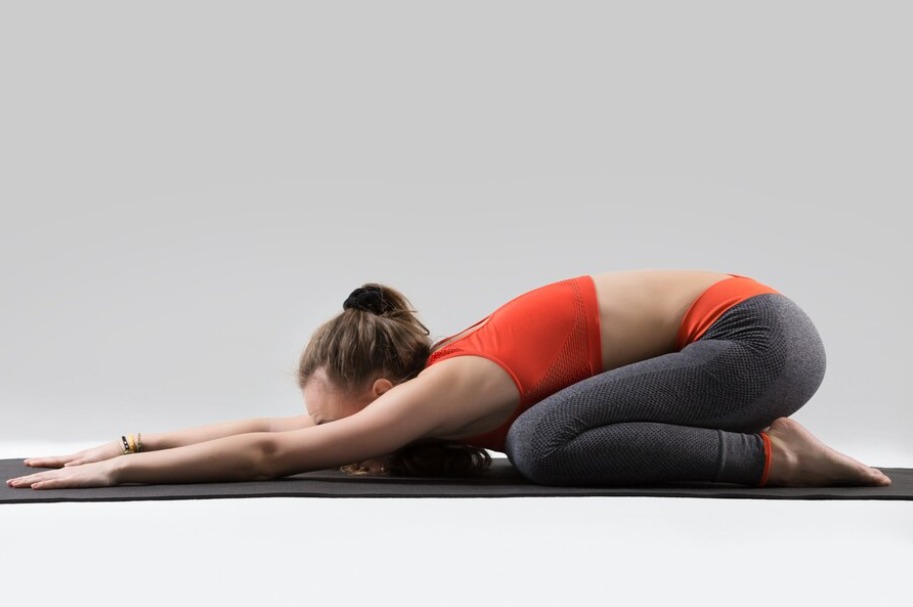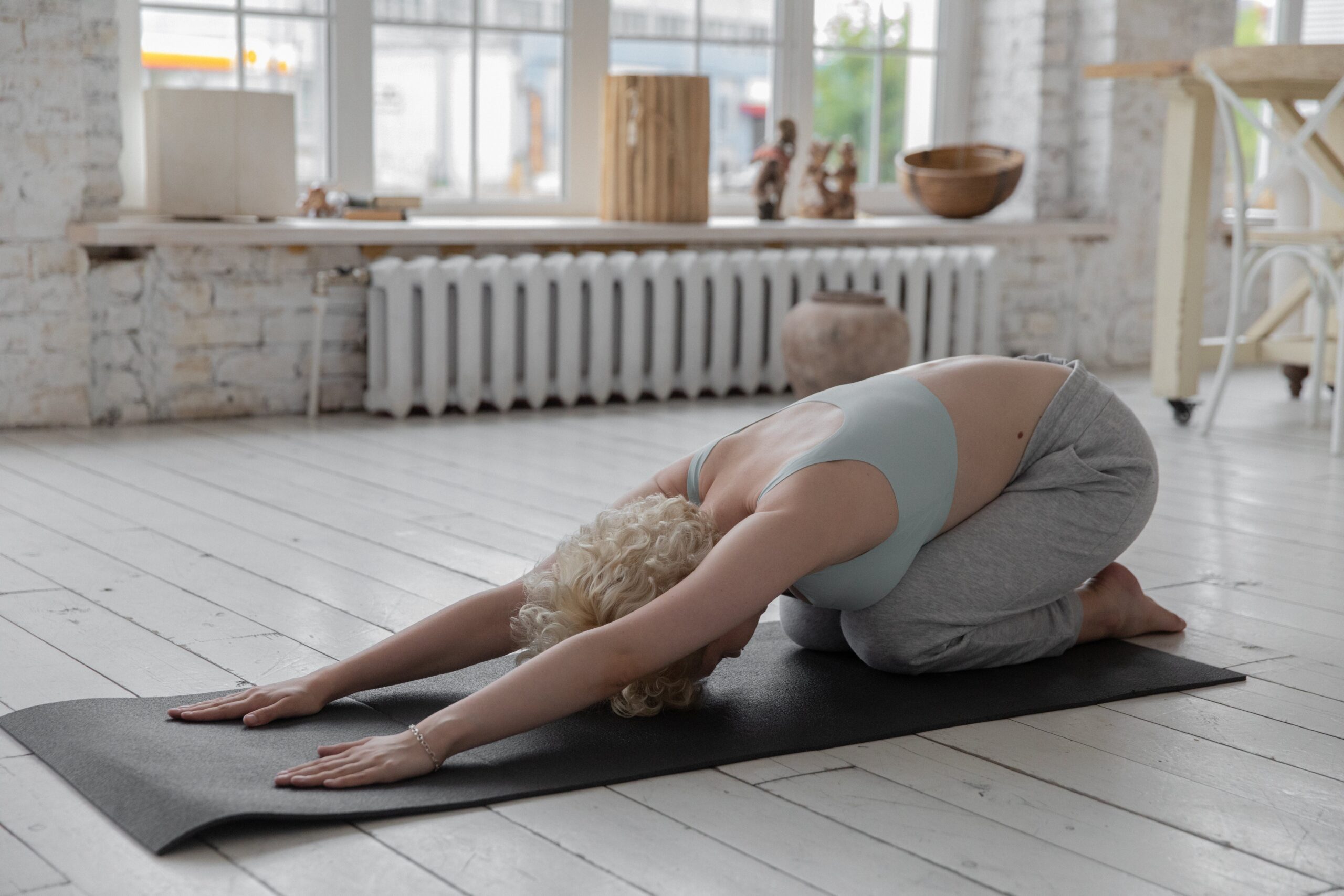Reducing Stress Through Yoga and Exercise:
In today’s world stress become an unwelcome companion for most of us. Work, relationships and daily responsibilities make us stressed and anxious. But there is one proven way to reduce stress completely and improve overall wellbeing.
Understanding stress:
Let’s understand what stress is and how it affects our bodies. Stress is the body’s natural response to challenges or threats. When we are overthinking about something can also promote stress. Chronic stress can have negative effects on our physical and mental health. It can cause a lot of health issues such as headaches, muscle tension and even more serious conditions like depression and many more.
The Role of Yoga in stress management:
Yoga, an ancient practice originating from India, has gained immense popularity worldwide for its benefits on both physical and mental wellbeing. The combination of mindful movements, controlled breathing and meditation makes yoga perfect for reducing stress level completely.
 Start with Simple Poses: If you’re new to yoga, begin with simple poses like Child’s Pose, Downward-Facing Dog, and Cat-Cow. These poses help release tension in the neck, shoulders, and spine, promoting relaxation and flexibility. Want to know more about yoga and its benefits, click here.
Start with Simple Poses: If you’re new to yoga, begin with simple poses like Child’s Pose, Downward-Facing Dog, and Cat-Cow. These poses help release tension in the neck, shoulders, and spine, promoting relaxation and flexibility. Want to know more about yoga and its benefits, click here.
 Focus on Breathing: One of the key elements of yoga is conscious breathing. Deep, rhythmic breathing helps activate the body’s relaxation response; it reduces stress hormones. Practice diaphragmatic breathing, where you inhale deeply through your nose, allowing your belly to expand, and exhale slowly through your mouth. Practicing it around 5-10 minutes on daily basis, help you to reduce overthinking and make you feel more energized and relaxed.
Focus on Breathing: One of the key elements of yoga is conscious breathing. Deep, rhythmic breathing helps activate the body’s relaxation response; it reduces stress hormones. Practice diaphragmatic breathing, where you inhale deeply through your nose, allowing your belly to expand, and exhale slowly through your mouth. Practicing it around 5-10 minutes on daily basis, help you to reduce overthinking and make you feel more energized and relaxed.
 Meditation: Including mindfulness meditation into your yoga routine. Sit comfortably and focus on your breadth or chant mantra. This practice can help calm you mind and promote a sense of peace and relaxation.
Meditation: Including mindfulness meditation into your yoga routine. Sit comfortably and focus on your breadth or chant mantra. This practice can help calm you mind and promote a sense of peace and relaxation.
How exercise can help in reducing stress:
In addition to yoga, regular physical exercise is also helpful in removing stress. Exercise releases endorphins, the body’s natural mood lifters and helps improve sleep, these both are big factors in stress management.
- Choose Activities You Enjoy: choose the activities which you love to do, or you enjoy doing. It can be cycling, walking, dancing or any sports activities which you enjoy. Start doing these activities help you feel relaxed and fresh.
- Create a Routine: a consistent exercise routine is essential. Aim for at least 30 minutes of moderate-intensity exercise. It not about a day, you need to be consistent.
- Embrace the Outdoors: If possible, take your exercise routine outdoors. Nature has its own calming effect, and exercising in fresh air can enhance the stress-reducing benefits. A simple walk in the park or a jog can uplift your mood.
Tips for stress management:
In the quest for stress reduction, the combination of yoga and exercise can be a powerful solution in stress management. By incorporating these practices into your daily life, you can promote a healthier, more balanced mind and body. Remember, it’s not about perfection but progress. Start with small steps and maintain consistency, being consistent is more important to see the results. Make a routine, stick to the routine and maintain consistency. And enjoy the journey towards a stress-free life.
Hope this information add values!!
Frequently asked question-
What is the role of yoga in reducing stress?
Yoga combines physical postures, breath control, and meditation to promote relaxation and reduce stress levels. The practice helps calm the mind, release tension from the body, and improve overall well-being.
What are some yoga poses or exercises specifically beneficial for stress relief?
Yoga poses such as Child's Pose (Balasana), Cat-Cow Stretch (Marjaryasana-Bitilasana), and Corpse Pose (Savasana) are excellent for relaxation. Similarly, exercises like walking, jogging, swimming, and cycling help in reducing stress.
How often should one practice yoga or exercise to experience stress reduction?
Aim for at least 30 minutes of moderate intensity exercise most days of the week for optimal stress reduction. Similarly, practicing yoga for 15-30 minutes daily or a few times a week can also yield significant benefits in managing stress.
Can yoga and exercise help with long-term stress management?
Yes, incorporating yoga and regular exercise into your lifestyle can build resilience to stress over time. These practices not only provide immediate relief but also improve overall physical health and mental well-being, making you better equipped to handle stress in the long run.


6 thoughts on “Reducing Stress Through Yoga and Exercise.”